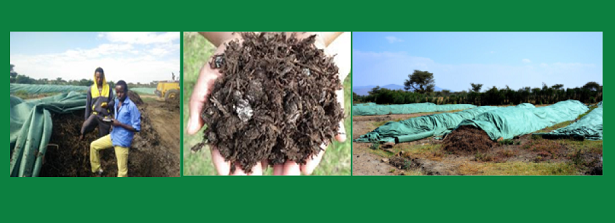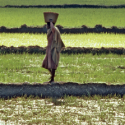Workshop on Composting for Sustainable Agriculture

The Fertile Grounds Initiative (FGI) in collaboration with the International Center for Tropical Agriculture (CIAT) and the Food & Business Knowledge Platform is organizing a workshop on “Composting for Sustainable Agriculture: Facts, myths, potentials and business opportunities”, at CIAT, ICIPE Duduville Campus, Kasarani, Nairobi, Kenya on September 12 and 13, 2016.
The Fertile Grounds Initiative closely partners with the Food & Business Knowledge Platform and CIAT to deliver a series of workshops on conditions for improved nutrient recycling in East Africa. The overall ambition is to develop viable pathways of change towards a circular nutrient economy. The objective of this series is to enhance knowledge and create awareness about the potentials of organic nutrient sources in terms of quality and quantity for sustainable agricultural intensification, and the role of stakeholders and conditions for lasting success.
The aim of the workshop is to generate awareness on the potential of utilizing organic resources; create a network of people who are involved or interested in getting involved in composting projects; build upon existing expertise and experiences in waste management; and to increase knowledge on developing business models for resource recovery.
Participants will include various stakeholders from research, NGO’s, governmental organizations, private sector and networks with different experiences and expertise in organic resource management, and who can help to expand the knowledge and information.







An idea was conceptualized following a series of participatory studies (Wendiro et al, 2014; Wendiro et al, 2012; Wendiro and Otim-Onyoni, 2004 unpublished) where indigenous products or ideas that had potential for commercialization were identified. Many of these products were fermented products requiring technological enhancement through application of science. In 2006 Uganda Industrial Research Institute got World Bank funding under the Millennium Science Initiative (MSI) to build capacity for Science and Technology training in Uganda. Since the idea to enhance traditional products using dual innovation systems framework was already being nurtured the opportunity was ceased and a Biotechnology Centre was established. The policy objective is to provide research and product development to facilitate utilization of biological and biochemical systems for transformation of natural resources for economic benefits. The vision is “Enhanced knowledge based biotechnology for sustainable development.” When MSMEs join the platform they access services offered to enable them establish production systems. Several products and processes are developed jointly, others by MSc. or PhD. students who are staff at the platform.
I wish to share experiences in initiating and managing this platform, where we discovered that waste from the banana juicing process can be used to make enzymes that are not only used for juicing banana but also for making glucose and maltose out of cassava and lactic acid. The waste is then used to grow mushrooms of the agaricus variety and as a fertilizer in the banana gardens.
Contributed by Deborah Wendiro